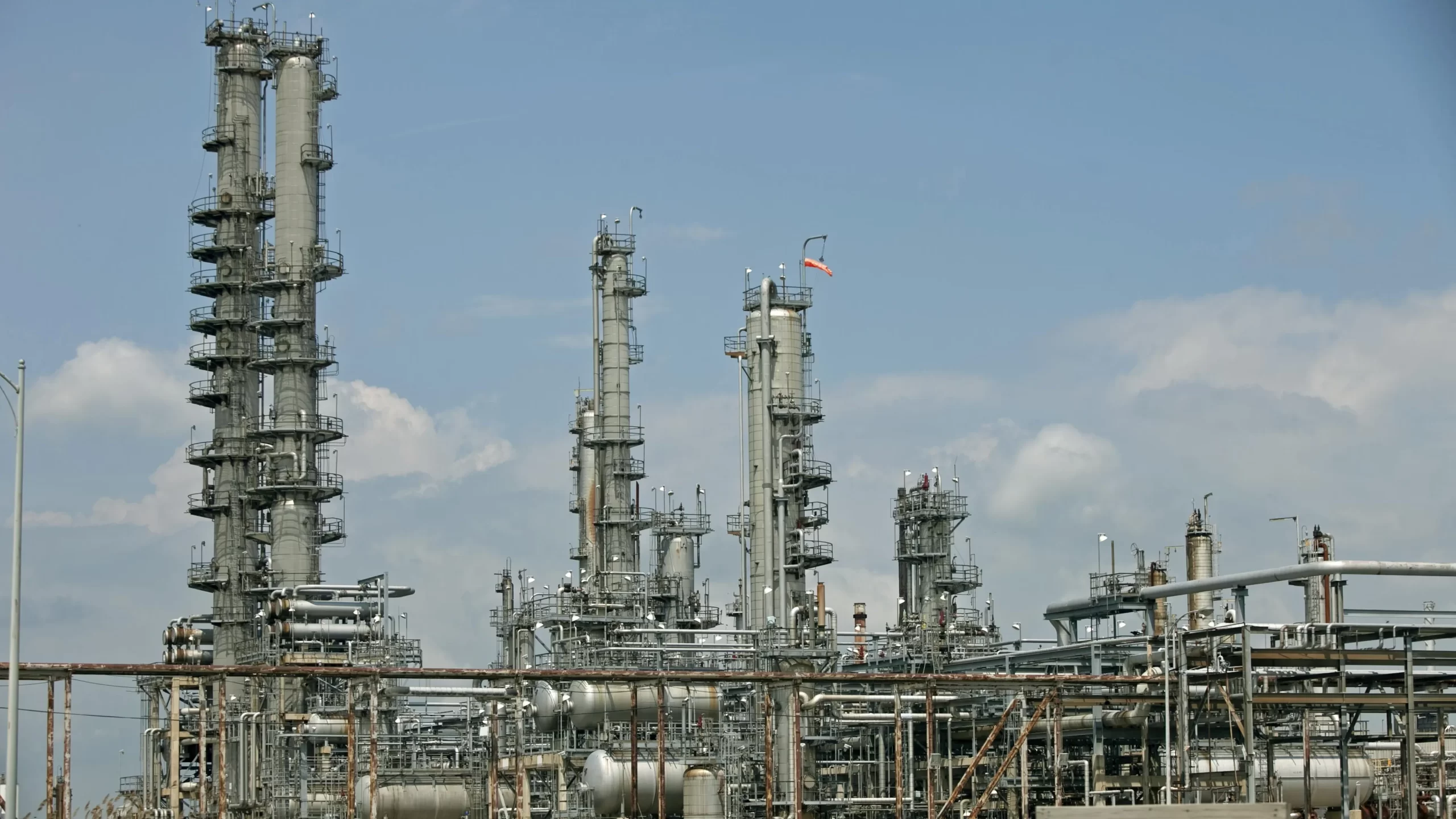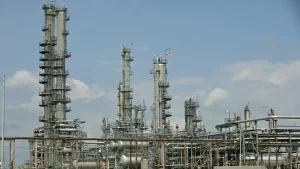
PHILADELPHIA, PA (Friday, April 11) – Yesterday, Clean Air Council filed a Dispute of the termination of a Environmental Protection Agency (EPA) grant which would have enabled the Council to respond to health concerns of Delaware City, DE communities by providing concrete services. The $490,912 Environmental Justice Collaborative Problem Solving (CPS) Cooperative Agreement grant was meant to establish air quality monitoring and help organize communities to study and protect themselves from air pollution emissions from the Delaware City Refinery.
On March 12, 2025, EPA notified the Council in a form letter that EPA had terminated the CPS grant without specifying which of several factors allegedly applied. The letter stated only that the grant allegedly:
“provides funding for programs that promote or take part in DEI initiatives or environmental justice initiatives or other initiatives that conflict with the Agency’s policy of prioritizing merit, fairness, and excellence in performing our statutory functions; that are not free from fraud, abuse, waste, or duplication; or that otherwise fail to serve the best interests of the United States. The grant is therefore inconsistent with, and no longer effectuates, Agency priorities.”
Approximately 400 federal grants around the country were similarly terminated.
“We are disputing this unlawful decision because we remain committed to fighting for the Delaware City communities served through this grant,” said Alex Bomstein, Clean Air Council Executive Director. “The communities around the Refinery have long endured health, economic, and social harms from the Refinery’s air pollution emissions, and we will do everything in our power to continue to advocate for their rights to clean air, pure water, and a livable climate despite our grant being wrongly terminated.”
The grant, welcomed by the community, promised to provide the following: (1) setting up air quality monitors; (2) analyzing the data with community members; (3) assisting in community organizing; and (4) helping residents and community organizations to develop emergency response plans in case of an emergency caused by the Refinery, such as an accident causing a sudden large release of toxic air pollution.

WASHINGTON, D.C. (March 13, 2025) – Yesterday, Environmental Protection Agency (EPA) Administrator Lee Zeldin announced that EPA will “reconsider” dozens of environmental protections. EPA’s rules protect millions of Americans from pollution and are crucial to averting the most devastating effects of the climate crisis. A key action on the chopping block is the Endangerment Finding – which is critical to regulating greenhouse gases and curbing climate change.
In 2009, after being ordered by the United States Supreme Court to fulfill its duties, EPA comprehensively reviewed climate science and arrived at an inescapable and long-understood conclusion: emissions of greenhouse gases like carbon dioxide are endangering public health and welfare by driving climate change. This determination, known as the “Endangerment Finding,” triggered EPA’s legal duty and provides its corresponding authority to regulate greenhouse gas emissions. The supporting scientific evidence has since grown exponentially stronger while Americans and the global community have suffered from the increased deadly fires, storms, floods, droughts, heat waves, and other impacts from climate disruption.
Yet now Zeldin’s EPA seeks to abdicate its duties to protect Americans from this threat to our health, economy, and national security by withdrawing the Endangerment Finding and vital environmental regulations. By denying the reality all around us and falsely declaring that greenhouse gases do not threaten human health, EPA would no longer be required to regulate them.
Alex Bomstein, Clean Air Council Executive Director, issued the following statement:
“Scientists have known that greenhouse gases cause climate change since the 1800s, and we are all now living through the wildfires, floods, and other climate chaos that generations of unchecked climate pollution have sowed. EPA’s attempt to reverse the Endangerment Finding is like declaring that tobacco doesn’t cause cancer and alcohol is fine for your liver. In attempting to deny reality, the Trump EPA wants to abandon efforts to protect us from the defining crisis of our time. We can’t let them do that.”

PHILADELPHIA, PA (March 12, 2025) Today, Clean Air Council received notice that our EPA grant to monitor air quality and protect residents from harmful pollution from the Delaware City Refinery (DCR) in Delaware City, DE was terminated. The project works to reduce health conditions like asthma and cancer that can be caused by air pollution from the DCR while also establishing a community-driven disaster response network in the neighborhoods surrounding the DCR in all directions, which could prevent potential harm to the health and safety of residents. The rationale EPA provided for canceling this funding is that it is inconsistent with agency priorities to support “programs or organizations that promote or take part in diversity, equity, and inclusion (“DEI”) initiatives” or “environmental justice initiatives.
Clean Air Council Executive Director Alex Bomstein issued the following statement:
“Environmental justice initiatives are critical to ensuring that everyone, regardless of their race, income, or background, has equal access to a clean and healthy environment. The termination of this program will have real life impacts for those in Delaware City being exposed to harmful pollution every day. Despite this termination notice, we are doing everything we can to continue this fight for Delaware City and all the communities we serve.”
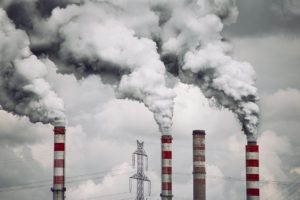
PHILADELPHIA, PA (June 27, 2024) – Today, the U.S. Supreme Court issued a ruling in Ohio v. EPA stalling the U.S. Environmental Protection Agency’s Good Neighbor Plan. The Good Neighbor Plan protects air quality by requiring 23 upwind states to reduce emissions of air pollutants that are contributing to dangerous ozone pollution levels in downwind states. Ozone pollution can worsen health issues like asthma, bronchitis, and emphysema, and cause premature death. As part of the Good Neighbor Rule, states must file plans indicating how they would meet these standards and reduce air pollution traveling to other states. In 2023, EPA found that the plans submitted by several states were insufficient, and so EPA fulfilled its obligation to generate a plan those states must follow to meet the standards and reduce the harm they are inflicting on residents of downwind states. Big polluters and certain states had asked that the courts put the Plan on hold.
Alexander G. Bomstein, Esq., Clean Air Council Executive Director issued the following statement:
“This ruling is a victory for corporate greed at the expense of human life. As Clean Air Council and other environmental advocates argued to the Supreme Court, the Good Neighbor Plan ‘ensure[s] upwind power plants and other large industrial facilities take reasonable measures to eliminate dangerous ozone emissions that significantly contribute to air quality problems in other States.’ EPA estimated the benefits of the Plan at $200 billion, mostly through lives saved and illnesses avoided. Putting this plan on hold at a time when fossil fuel air pollution is causing one in five deaths worldwide shows a callous disregard for all of our lives.”

Environmental Protection Agency sides with Environmental Integrity Project, PennFuture, Clean Air Council and objects to U.S Steel Edgar Thomson’s Title V permit as it was not in compliance with the Clean Air Act
PITTSBURGH, PA, Feb. 12, 2024 – In another step to help protect Mon Valley residents from harmful air pollutants, the Environmental Protection Agency (EPA) has again sided with environmental groups by issuing an order objecting to an air quality permit issued by the Allegheny County Health Department (ACHD) to U.S. Steel on the basis that it was not in compliance with the Clean Air Act. This time, the EPA objected to the permit issued to U.S. Steel’s Edgar Thomson facility by ACHD in August 2023.
In September 2023, environmental groups submitted a petition to EPA requesting it object to the Title V air quality permit issued to U.S. Steel Edgar Thomson by ACHD. In the petition, environmental groups argued that the Title V permit did not include monitoring and testing requirements sufficient to assure compliance with multiple air quality emissions limitations for multiple emissions sources, and improperly eliminated certain emissions limitations.
On February 7, 2024, EPA issued an order granting all of the petitioners’ claims and objecting to the Edgar Thomson Title V permit on those grounds. In its order, EPA requires ACHD to revise the permit and/or permit record in accordance with its decision.
This marks the second occasion in recent months that environmental groups have successfully petitioned EPA to object to deficient Title V permits issued by ACHD to U.S. Steel facilities in the Mon Valley. In October, EPA issued a similar order granting the majority of petitioners’ claims relating to insufficient monitoring and testing requirements and objecting to the U.S. Steel Clairton Coke Works’ Title V permit issued by ACHD.
The U.S. Steel Edgar Thomson Plant is an iron and steel making facility with a history of noncompliance with air pollution regulations and a major source of air pollution in Allegheny County. Pollutants of concern emitted by the facility include particulate matter, sulfur dioxide, carbon monoxide, nitrogen oxides, volatile organic compounds, and hazardous air pollutants, among others.
“We are thrilled EPA ordered the Health Department to make all 10 changes we requested so that this massive polluter no longer has a permit full of loopholes,” said Lisa Hallowell, Senior Attorney with the Environmental Integrity Project. “The permit now must be revised to require monitoring to assure compliance with permit limits, which will benefit public health and the environment throughout the Mon Valley.”
“Ensuring that industry polluters comply with permit limits is necessary to protect Allegheny County residents from harmful air pollution,” said Angela Kilbert, Senior Attorney for PennFuture. “EPA’s order directs ACHD to ensure that this Title V permit has air quality monitoring and testing requirements sufficient to assure U.S. Steel Edgar Thomson operates in compliance with its emissions limits.”
“Mon Valley residents shouldn’t have to put up with some of the worst air in the country,” said Alex Bomstein, Clean Air Council Legal Director. “Through air quality monitoring and testing requirements, EPA’s orders will help to ensure that the facility operates within the law, which is key to protecting residents from harmful pollution.”
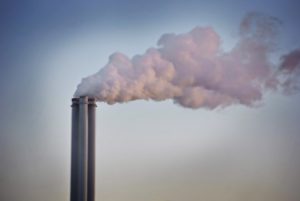
PHILADELPHIA, PA (February 7, 2024) – Responding to overwhelming scientific evidence, the U.S. Environmental Protection Agency (EPA) has acted to protect public health by lowering the annual standard for ambient air concentrations of fine particulate matter, commonly known as soot or PM2.5. These tiny particles, with diameters 30 times smaller than a human hair, can be absorbed through the lungs directly into the bloodstream, leading to respiratory and cardiovascular injuries and premature death. Growing evidence also links exposure to increased risk of dementia. EPA last reduced the standard to 12 from 15 µg/m³ over a decade ago, leading to considerable health improvements and corresponding economic benefits.
Matt Walker, Clean Air Council Advocacy Director, issued the following statement:
“Today’s announcement from the EPA is a significant win for public health and will allow millions of Americans to breathe easier. By reducing the annual National Ambient Air Quality Standard (NAAQS) by 25 percent, EPA will be saving tens of thousands of lives per year, protecting children, the elderly, and people in overburdened communities from lasting health harms. This standard will also save billions of dollars from associated health care costs and lost work days. In Pennsylvania, we anticipate substantial air quality improvements in the seven counties that are not in attainment of the new standard.
However, since there is no safe level of PM2.5 exposure, we call on EPA to soon further reduce the annual standard. Reducing the standard to the World Health Organization’s suggested 5 µg/m³ limit would save an additional 40,000 lives and billions more dollars. EPA should also reduce the 24-hour standard, which would mean less severe daily spikes in soot exposure. The U.S. can lead the way in further improving our air quality, resulting in thriving, healthy communities.”

WASHINGTON, DC (December 14, 2023) – Today, the United States Environmental Protection Agency (EPA) announced that vinyl chloride is a candidate for high-priority designation under the Toxic Substances Control Act (TSCA). The primary goal of TSCA is to regulate the introduction of new or existing chemicals into commerce to ensure that they do not pose an unreasonable risk to human health or the environment. If EPA finds vinyl chloride presents unreasonable risk, it must start a process of developing a risk management rule to eliminate all risks that it found to be unreasonable. Risk management may take many forms including, but not limited to, bans or partial bans, phase-outs, restrictions on manufacturing, processing, distributing, or disposing – including volume restrictions and prohibitions on release or discharge. The public will have the opportunity to comment on the proposed risk management rule.
Matt Walker, Clean Air Council Advocacy Director, issued the following statement:
“Clean Air Council is very pleased that EPA has selected vinyl chloride as a candidate for high-priority designation under TSCA. Vinyl chloride is a known human carcinogen and can cause other serious health harms. In communities that live in the shadow of petrochemical facilities, the harms from vinyl chloride exposure are compounded by exposures to other other toxic chemicals and stressors. EPA must consider these cumulative risks in its analysis. As the disaster in East Palestine, Ohio demonstrated, people living along rail lines used to transport vinyl chloride are in danger of significant exposures to this toxic chemical. It will be critical for EPA to evaluate these risks.”
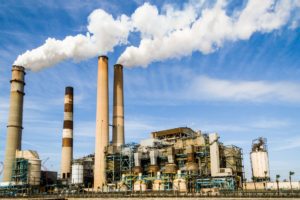
Reductions in cross-state smog-forming emissions will go forward
Environmental and health groups celebrated an important step toward clean air after a federal appeals court today denied the requests of states and industry groups to block the Environmental Protection Agency’s (EPA) “Good Neighbor Rule.” The rule, designed to address cross-state air pollution and the adverse health effects of ozone pollution, also called smog, will improve public health and air quality.
The Good Neighbor Rule, a vital measure aimed at reducing cross-state air pollution, requires coal-burning power plants and other high-polluting industrial sources to decrease emissions that contribute to smog. Polluters in upwind states like Indiana and Ohio that had previously avoided implementing pollution controls are slated to reduce their contributions to hazardous smog levels in downwind states like Connecticut and Wisconsin.
“The court’s refusal to block this protective air rule serves as a critical step towards holding upwind polluters accountable for their contribution to cross-state smog,” said the coalition of health and environmental groups defending the rule. “We remain committed to fighting for cleaner air and a healthier future, ensuring that polluters are held responsible for jeopardizing air quality.”
The federal appeals court’s decision to reject the stay request is a triumph for communities striving to combat the health risks posed by air pollution. EPA estimates that the Good Neighbor Rule, when fully implemented, will prevent more than a million asthma attacks annually and at least a thousand premature deaths. This rule will also improve the health of forests and waterbodies harmed by ozone and its precursor pollutants.
“This court decision marks a crucial step in our ongoing battle to hold upwind polluters accountable for exacerbating cross-state smog pollution,” said Earthjustice Attorney Kathleen Riley. “With more than 127 million people residing in regions plagued by harmful ozone levels, the Good Neighbor Rule protects public health. Earthjustice will keep fighting to ensure that this and national air quality rules truly protect public health.”
The U.S. Court of Appeals decision for the D.C. Circuit is notable after other courts blocked a related rule from going forward in certain states. With support from the coalition of environmental and health organizations, EPA has consistently argued that all challenges to these national protections should be heard in the D.C. Circuit, the court with experience reviewing prior Good Neighbor rules.
Smog, a harmful form of air pollution generated by vehicles, factories, and power plants, leads to asthma attacks, heart and lung diseases, and premature deaths nationwide.
The Good Neighbor Rule is just one necessary step to protect people from the adverse health impacts of air pollution. Recent studies show that the national standards for particulate matter—soot—and smog- are far too weak to protect people from premature death, lung cancer, reproductive harm, and cardiovascular disease. This year, the EPA proposed a new standard for soot, but it’s not nearly as strong as scientists and doctors say it needs to be. Stronger soot and smog regulations would save tens of thousands of lives.
A coalition of environmental and health groups has defended the Good Neighbor Rule in court. The coalition includes the Environmental Defense Fund; Citizens for Pennsylvania’s Future, Clean Air Council, and Clean Wisconsin represented by the Clean Air Task Force; and Air Alliance Houston, Appalachian Mountain Club, Center for Biological Diversity, Chesapeake Bay Foundation, Downwinders at Risk, Louisiana Environmental Action Network, Sierra Club, Southern Utah Wilderness Alliance, and Utah Physicians for a Healthy Environment, represented by Earthjustice.

Philadelphia, PA (May 11, 2023)
This morning, the U.S. Environmental Protection Agency (EPA) issued a proposal for: (1) updated New Source Performance Standards (NSPS) to reduce greenhouse gas (GHG) pollution from new, modified, and reconstructed fossil fuel-fired power plants; and (2) Emissions Guidelines to reduce GHG pollution from certain existing fossil-fired power plants nationwide. The EPA first set carbon rules for existing power plants in the 2015 “Clean Power Plan” under the Obama administration, but those rules never took effect because the U.S. Supreme Court first stayed them, then the Trump administration repealed them. Last year, the Supreme Court issued an opinion that offered guidance to EPA on the scope of its authority. EPA is unequivocally required by the Clean Air Act to establish limits on carbon dioxide from new and existing fossil power plants.
In terms of climate pollution, Pennsylvania’s power sector is the third-dirtiest in the country. The most recent emissions data shows that carbon pollution from Pennsylvania power plants is on the rise and roughly two-thirds of in-state electricity is still generated by fossil fuels. Meanwhile, Pennsylvanians face direct injury from climate change, including lower air quality, increased flood damage, agricultural losses, and higher rates of vector-borne illnesses like Lyme disease.
Joseph Otis Minott, Esq., Executive Director and Chief Counsel of Clean Air Council, issued the following statement:
“Binding federal requirements to reduce carbon pollution from fossil fuel power plants are long overdue. EPA’s proposal is absolutely critical to combating the climate crisis and protecting the air quality and health of residents across the country. When paired with recent federal climate legislation, these rules will help our country achieve our climate commitments and preserve the chance to avoid the most catastrophic impacts of climate change. I applaud EPA for taking this important action and urge the agency to strengthen this proposal and finalize these rules without delay. It is worth noting that Pennsylvania’s participation in the Regional Greenhouse Gas Initiative (RGGI) will result in significant progress towards achieving EPA’s proposed performance standards for existing sources, and we look forward to working with state officials and stakeholders to continue transitioning Pennsylvania to a clean, carbon-free future.”
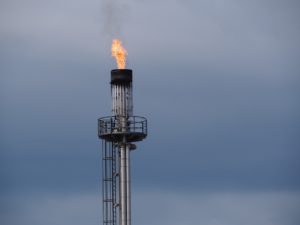
PHILADELPHIA, PA (August 13th, 2020) – Today, the Environmental Protection Agency (EPA) finalized its unlawful rollback of the 2016 New Source Performance Standards (NSPS) for the oil and gas sector, directly contradicting EPA’s obligations under the Clean Air Act. The NSPS has been in full effect and successfully implemented for years now and has prevented millions of tons of methane, an extremely potent climate pollutant, from leaking into the atmosphere. The NSPS rollback has faced major opposition from the general public, scientists, health experts, and even major oil and gas companies, including Exxon Mobil and BP. Methane leaks at every phase across the oil and gas supply chain, and is responsible for about one quarter of the anthropogenic climate change we are experiencing today.
In addition, other harmful pollutants, including known carcinogens such as benzene, leak alongside methane from oil and gas operations. The 2016 NSPS required natural gas drilling companies to perform routine, commonsense inspections and repair leaks at oil and gas facilities. EPA’s unlawful rollback reduces inspection frequency substantially despite no factual basis in the record for doing so. Indeed, the evidence is clear that frequent inspections are necessary to identify leaks, that doing so is cost-effective, and that inspections actually generate substantial savings for operators.
Joseph Otis Minott, Esq., Executive Director and Chief Counsel of Clean Air Council, issued the following statement:
“The Environmental Protection Agency’s dangerous and unlawful rollback of critical air quality standards, during a global pandemic no less, threatens the health and safety of every person in the U.S., and disproportionately Black and Brown communities. The entire approach is nonsensical, as EPA identifies no practical or administrative problems in enforcing these standards and no burden to industry in continuing to comply with them. It is simply mindless deregulation that leading oil and gas operators do not even want. These critical climate and health protections have been working successfully for years, and the Trump administration’s reckless rollback will be challenged in court immediately.”
Philadelphia’s Office of Sustainability and Physicians for Social Responsibility agree the Administration’s removal of methane from the 2016 NSPS for oil and gas facilities is a dangerous step in the wrong direction:
Director of Philadelphia’s Office of Sustainability Christine Knapp:
“Mayor Kenney has been a champion in fighting against federal rollbacks that address climate change. He committed Philadelphia to meeting the goals of the Paris climate agreement and signed the Mayor’s for 100% Renewable Energy pledge. In order to meet these goals, we need the support of the state and particularly the federal government. This is not the time to go backwards. These rollbacks take us further from meeting our goals and forces us to spend time and resources to fight against them. Federal standards for methane pollution from oil and gas facilities must remain intact if we are serious about mitigating the oppressive effects of climate change.”
Physicians for Social Responsibility Interim Director Dr. Walter Tsou
“If it can reach 100 degrees in Siberia, what will this summer look like in Philadelphia? Now add the COVID-19 pandemic and you have a recipe for disaster. Many of the most vulnerable have created brick oven-like conditions inside their homes. Pennsylvania is sadly a major contributor of greenhouse gas pollution through fracking in the Marcellus shale region of which covers two-thirds of the state. The chief component of fracked gas is methane, a greenhouse gas with 87 times more warming potential than carbon dioxide over the course of 20 years. Philadelphians need a strong standard for methane pollution from oil and gas facilities in order to avoid the dangerous effects of continued climate change. The current administration must abandon it’s unnecessary rollback of this vital public health protection.”
